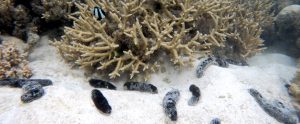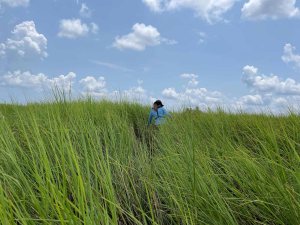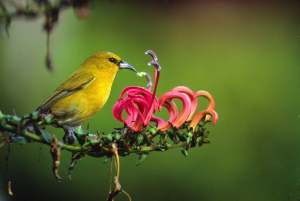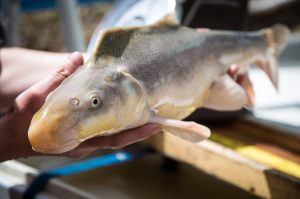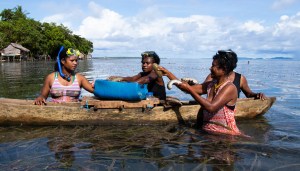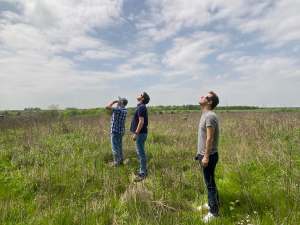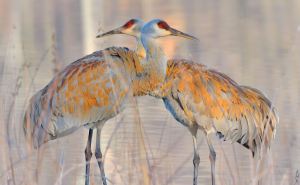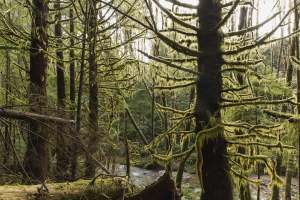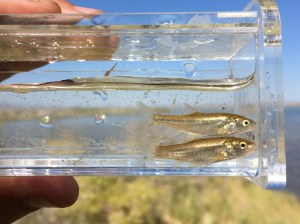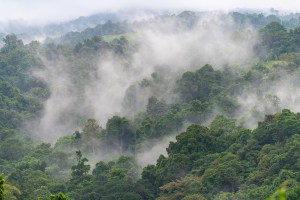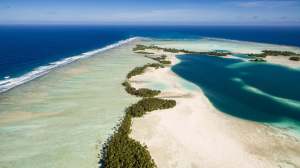Discover stories in TNC Places
Want to Suppress Coral Disease? Bring Back Sea Cucumbers
By feeding on microbial pathogens in marine sediment, the weird and wonderful sea cucumber can enhance reef resilience by suppressing coral diseases.
Meet the Leatherback: A Giant, Deep-Diving Migrant of the Open Seas
What dives deeper than a submarine, swims across oceans, is covered in polka-dots, and has a mouth straight out of a horror movie?
Marsh on the Move
In Georgia, researchers are testing the mettle of the marsh and beginning to track its shifts.
How Can You Stop a Disease-Carrying Mosquito?
An effort to slow the spread of deadly avian malaria is giving Hawaiian forest birds a fighting chance.
Utah Nursery Gives Endangered Fish a Place to Grow
Razorback suckers have faced a perilous future on the Colorado River. A Moab preserve offers hope.
When Sea Cucumbers Spawn, Where Do Their Larvae Go?
New research on sea cucumber genetics indicates that locally managed marine areas are a good way to protect this fishery for communities.
A Tailgate for the Sun
Join writer Jenny Rogers as she watches the solar eclipse from a remnant patch of blackland prairie in Texas.
Did You Know Sandhill Cranes Dye Their Feathers?
Sandhill cranes add a rusty-brown color to their gray feathers each spring.
Restoring Old-Growth Forests in the Pacific Northwest: Lessons from TNC’s Ellsworth Creek Preserve
Scientists are evaluating 15 years of forest management at TNC’s Ellsworth Creek Preserve to inform large-scale forest restoration efforts.
Borax Lake Chub: Conserving a High Desert Survivor
This fish has adapted to a lake high in arsenic and heavy metals. But human activity poses a greater challenge.
Communities Unite to Save Papua New Guinea’s Forests from Logging
A group of villages in Papua New Guinea decided to protect their damaged rainforests from future clearcuts. A photographer captured that work in action.
Coral Atolls are Not a Lost Cause
An international team argues that strategic ecological restoration could save coral atoll islands from the rising seas of climate change.
